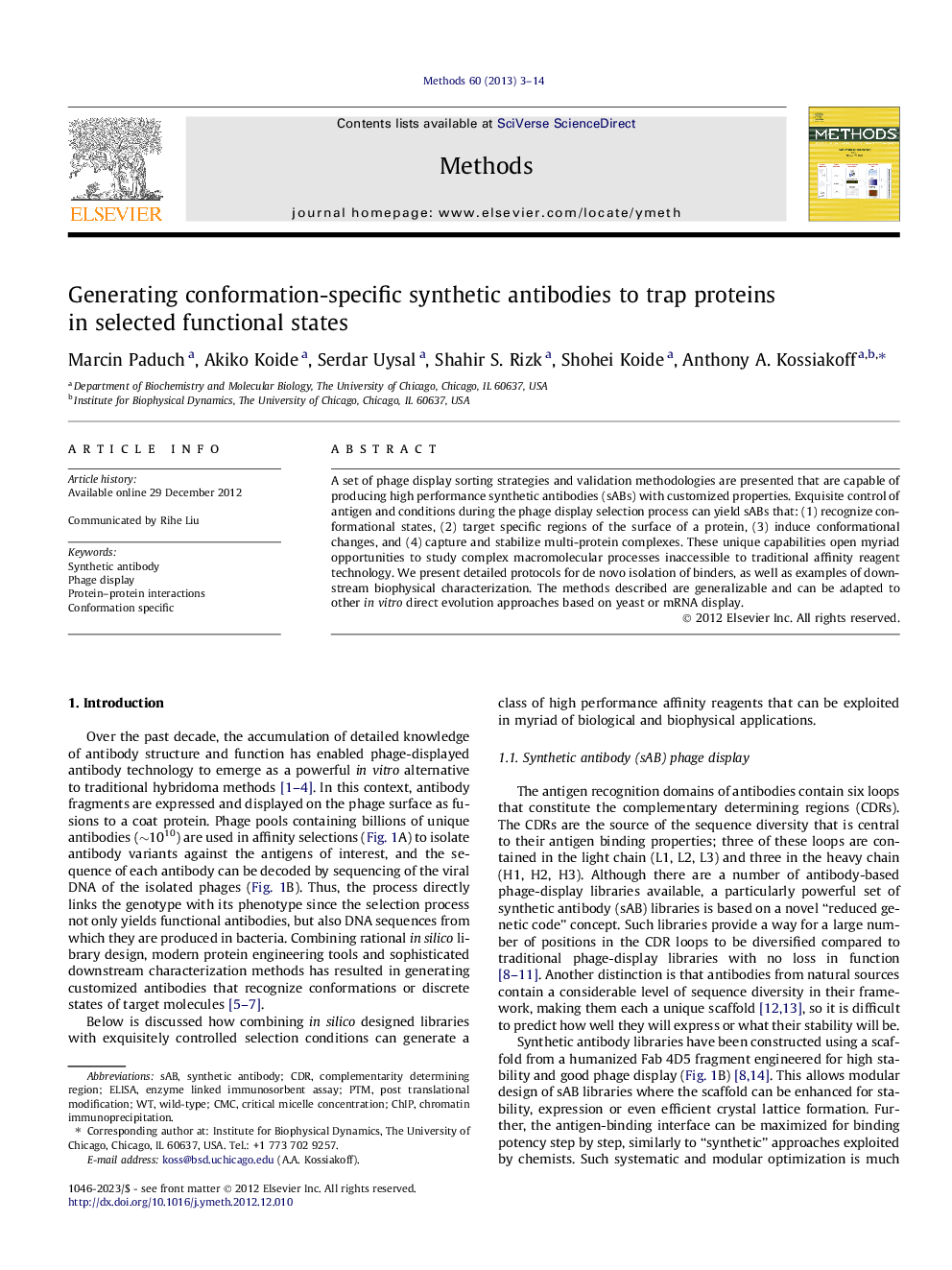| Article ID | Journal | Published Year | Pages | File Type |
|---|---|---|---|---|
| 1993646 | Methods | 2013 | 12 Pages |
A set of phage display sorting strategies and validation methodologies are presented that are capable of producing high performance synthetic antibodies (sABs) with customized properties. Exquisite control of antigen and conditions during the phage display selection process can yield sABs that: (1) recognize conformational states, (2) target specific regions of the surface of a protein, (3) induce conformational changes, and (4) capture and stabilize multi-protein complexes. These unique capabilities open myriad opportunities to study complex macromolecular processes inaccessible to traditional affinity reagent technology. We present detailed protocols for de novo isolation of binders, as well as examples of downstream biophysical characterization. The methods described are generalizable and can be adapted to other in vitro direct evolution approaches based on yeast or mRNA display.
Graphical abstractFigure optionsDownload full-size imageDownload as PowerPoint slideHighlights► We present a streamlined method of generating synthetic antibodies by phage display. ► In vitro selections allow for unique control over the antibody selection process. ► Synthetic antibodies can be made that specifically target functional states of molecules. ► Trapping of discrete protein conformations is possible.
